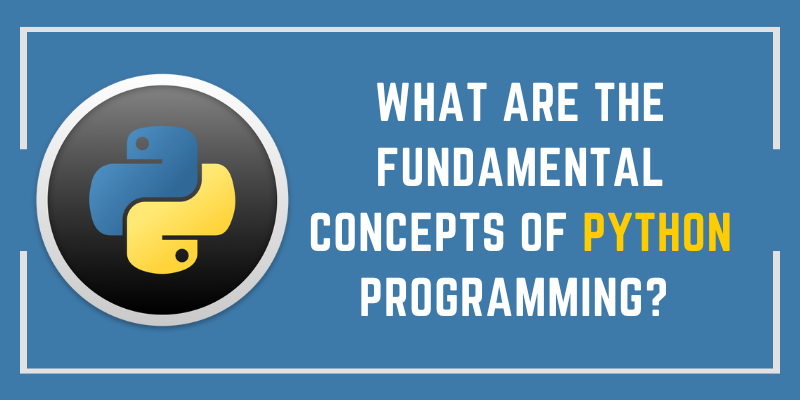Python, a versatile and user-friendly programming language, has been gaining popularity due to its simplicity of use, readability, and wide range of applications. Whether you’re a beginner just getting started with programming or an experienced designer looking to expand your horizons, understanding the core concepts of Python is essential. In this blog post, we’ll look at the What are the fundamental concepts of Python programming. Whether you’re new to programming or aiming to expand your skills, Python Training In Hyderabad offers a solid foundation and the tools to excel in various software development domains.
Syntax and Readability
Python’s syntax is created to be easy to understand. Indentation, rather than brackets, is utilized for indicating code blocks. This results in more transparent and more readable code. Furthermore, Python’s usage of meaningful variable names improves the code’s clarity and readability.
Data Types and Variables
Python supports various data types, including integers, floating-point numbers, strings, lists, tuples, dictionaries, and more. Variables are used to store and manipulate these data types. Dynamic typing allows you to reassign variables to different data types without explicitly declaring them.
Control Structures
Python has basic control structures such as loops (for and while) and conditional statements (if, Elif, else). These structures allow you to regulate the flow of your program, allowing you to iterate over collections, perform repetitive tasks, and make decisions based on conditions. Enrolling in Python Training In Cochin, which will provide a comprehensive curriculum, expert instructors, and hands-on projects
Functions and Modules
Functions are reusable units of code that can be invoked with particular inputs to execute a task. Python’s modular design encourages the creation of functions, which improves code organisation and reusability. Modules enable you to combine related functions and classes, making your codebase more manageable.
Object-Oriented Programming (OOP)
Python supports object-oriented programming principles such as encapsulation, inheritance, and polymorphism. You can create classes and objects, which enable you to model real-world entities and their behaviours in your code.
Exception Handling
Python’s exception-handling mechanism helps manage errors gracefully. You can anticipate and handle runtime errors without crashing the program using try, except, and finally, blocks.
File Input/Output (I/O)
Python has functions for reading and writing files, making data storage and retrieval simple. The ‘with’ statement ensures proper handling of file resources, preventing memory leaks. Python Course In Pondicherry offers a structured learning path, covering essential concepts and advanced topics.
Lists, Tuples, and Dictionaries
These built-in data structures enable you to store data collections. Lists are mutable ordered sequences, tuples are immutable, and dictionaries are key-value pairs that help with data retrieval.
Comprehensions
List and dictionary comprehensions provide quick and easy ways to generate lists and dictionaries from existing data. They make code easier to read and remove the need for explicit loops.
Libraries and Packages
Python’s extensive standard library and third-party packages enable developers to tackle many jobs without reinventing the wheel. From data analysis and visualisation (Pandas, Matplotlib) to web development (Flask, Django), the Python ecosystem is vast and diverse.
Finally, understanding the core concepts of Python programming prepares you for your coding journey. Python’s emphasis on simplicity, readability, and versatility makes it an excellent choice for beginners and specialists. A strong understanding of Python’s fundamental principles will guide you in navigating the programming world, whether writing scripts, developing web apps, researching data science, or diving into machine learning. Python Classes In Pune offer an immersive learning experience, blending theoretical knowledge with practical application.


